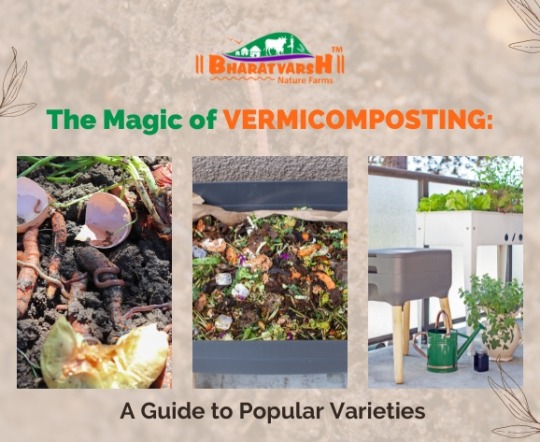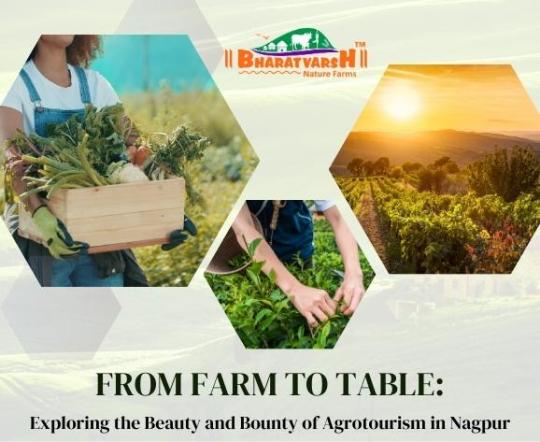#Benefits of Agriculture
Text
Diversified Farming Definition | Harisharan Devgan
The benefits of agricultural diversification are an important strategy that can bring numerous benefits to farmers and agricultural systems. By spreading risk across multiple crops or livestock enterprises, diversification can help to reduce the negative impact of crop failure, weather, pests, or market fluctuations.
Top Advantages of Farm Diversification
some of the main benefits of agricultural diversification
increased revenue - by taking on new activities you and your family are likely to enjoy an increased farm income and a better quality of life.
Adaptability - branching out encourages you to be willing to change and look out for other opportunities.
Security - by moving into new activities farms can provide you and your family members with a long-term future and greater stability.
Tradition - diversifying can provide you and your family with a means of carrying on your farming tradition.
Develop new skills - running a new venture will provide the opportunity to increase your skills and expand your network of business contacts.
#Diversified Farming#benefits of agriculture#agriculture#farmingtechnologies#cannabisresearch#agripreneur#organicfarmer#agriculturetechnology#agriculture technology#farming#farmer#organicfarmerofmillionaire
0 notes
Text
A Confucian country that does not know "courtesy: etiquette": South Korea (Essay)

The Korean flag...is also based on Confucianism.
China influenced South Korea for a long time and Confucianism was its state religion. In modern times, it widely accepted Christianity and became a Christian country too, but I think it easily accepted Christian logic because Confucianism emphasized family relationships.
In Confucianism, the basis of human ethics is "etiquette," but South Koreans seem not to understand this concept. In soccer, baseball, boxing, fencing, kendo, Judo, and many other international competitions, they will commit fouls to win with pleasure, and even go so far as to bribe the referee to secure victory. Even worse, they make able-bodied people compete as visually impaired people in judo classes for physically disabled people and rake in the medals…. no matter how you look at it, they are doing things that go against "etiquette." This argument can be made in sports, politics, economy, agriculture, etc. South Koreans steal many Japanese-branded agricultural products, cultivate them, and make money from them. (Strawberry, Grapes, Sweet potato, etc)
Regarding teachings, Confucianism has a complete logical system, and "etiquette" is the wisdom that keeps human relationships peaceful and undisturbed. However, South Koreans only seek material benefits. The fact that Koreans have been immersed in Confucianism for over 1,000 years and still cannot understand it is definitely because they are in the category of "immature, evil brats." They are hopeless people.
Rei Morishita
2024.07.14
「礼」を知らない儒教国:南朝鮮(エッセイ)
南朝鮮は、長らく中国の影響を受け、儒教を国教としていた。近代になって広くキリスト教を受け入れ、キリスト教国にもなったが、実は儒教が家族関係を重視していたことから、キリスト教の論理をすんなり受け入れたと私は見る。
儒教で、人倫の基本は「礼」になるのだが、南朝鮮の人は、どうにもその概念が解らぬらしい。サッカー、野球、ボクシング、フェンシング、剣道、ほか多くの国際大会で、勝つためなら平気で反則はするし、はなはだしくはレフェリーを買収して勝利をものにすることまでする。どう見ても「礼」に反する行いを平気でやっている。さらに酷いことには、身体障碍者のクラスの柔道に、健常者を視覚障碍者として参加させ、メダルを荒稼ぎするとか・・・
この議論は、スポーツに限らず、政治、経済、農業その他でも行える。韓国人は、日本ブランドの農作物をいくつも盗んで栽培し、お金にしている。(イチゴ、ブドウ、サツマイモ等)
教えとして見る限り、儒教は完結した論理体系を持っていて、「礼」とは人間関係を乱れず平穏に結ばせる知恵なのである。ところが、南朝鮮人は実利のみ求めるのだ。1000年以上儒教に浸っていて、それが理解できないというのは、朝鮮民族が「未熟な悪餓鬼」というカテゴリーに含まれるからであろう。救いようのない民族だ。
#A Confucian country that does not know courtesy#rei morishita#South Korea#essay#Confucianism#Christianity#international competitions#etiquette#South Koreans steal many Japanese-branded agricultural products#South Koreans only seek material benefits.#hopeless people#courtesy
2 notes
·
View notes
Text
home appraisal this tuesday and then it looks like sometime next week i will officially own my first house

13 notes
·
View notes
Text
THE MAGIC OF VERMICOMPOSTING: HOW WORMS CAN TRANSFORM YOUR GARDEN AND REDUCE WASTE

Are you tired of throwing away your kitchen scraps and yard waste, only to see them end up in a landfill? What if I told you there was a magical solution that could transform your waste into nutrient-rich compost for your garden, all with the help of some slimy little creatures? That’s right, we’re talking about the magic of vermicomposting – the process of using worms to break down organic waste into a rich soil amendment. In this blog, we’ll explore the benefits of vermicomposting, how to set up your own worm bin, and tips for maintaining a healthy worm population. Get ready to discover the power of these little composting champions and transform your waste into a garden oasis!
Vermicomposting: What is it?
In vermicomposting, worms are used to compost. It is an efficient way to reduce kitchen and yard waste while providing a nutrient-rich additive for your garden.
The process is simple and does not require a lot of space. It only takes a composting bin, bedding material, and worms to get started. The worms will compost the organic matter once it has been broken down.
Composting worms are different from earthworms in your garden. They are specially adapted to eating organic matter and are very efficient at breaking it down.
Vermicomposting has many benefits, including reducing waste, improving your garden, and reducing your carbon footprint. If you want to reduce your waste and help the environment, vermicomposting is a great option!
The Benefits of Vermicomposting
Vermicomposting has clear benefits, and the practice is easy to implement. The worms will do the work of breaking down the organic matter into nutrient-rich, dark compost. This compost can then be used to fertilize plants in your garden. It is an efficient way to reduce waste while providing essential nutrients for your garden.
The benefits of vermicomposting extend beyond reducing waste and enhancing garden health. In addition to producing less waste, vermicomposting reduces the amount of methane released into the atmosphere. It has also been found that vermicomposting increases the number of beneficial microbes in soil, which helps plants absorb nutrients more effectively.
As a result of vermicomposting, toxins such as fertilizers, pesticides and herbicides are eliminated from the environment. Degrading organic matter also reduces carbon dioxide emissions and global warming. Moreover, plants are able to grow better as the soil becomes more resistant to erosion.
Overall, vermicomposting can play an important role in fighting climate change and reducing pollution. By recycling kitchen and yard waste, you can create nutrient-rich compost that has the potential to revolutionize your garden and help the environment.
Read More: https://bharatvarshnaturefarms.com/the-magic-of-vermicomposting-how-worms-can-transform-your-garden-and-reduce-waste/
#Benefits of Vermicompost#Benefits of vermicompost in agriculture#Benefits of Vermicomposting#Best Nursery in Nagpur#best organic plant nursery in nagpur#Buy Organic Vermicompost Online#Magic of Vermicomposting#nursery plants in nagpur#Organic Vermicompost#Organic Vermicompost Online Price#Organic Vermicompost Producer in Nagpur#plant nursery#Role of Vermicompost#Science Behind Vermicomposting#Vermicomposting Tips#Vermiculture bed
3 notes
·
View notes
Text
aubrey plaza capitalizing on the got milk campaign when the whole thing is a scam <<<<<<
#1 am rants#the US government has subsidized dairy farmers for years and they need to sell their shit#thats it#milk has little benefit to you and your bones#the government will get their coin before fixing the environmental disaster theyve caused with cows and our agricultural in general#got milk#milk#aubrey plaza#capitalism
6 notes
·
View notes
Text
Discovering the Nutritional Benefits of Growing Organic Produce
Discovering the Nutritional Benefits of Growing Organic Produce
Organic gardening is a fantastic way to not only get healthy, delicious food, but to also reduce your environmental footprint. Growing your own food organically can give you a wide variety of nutritional benefits.
Organic fruits and vegetables are free from the harsh chemicals used in conventional farming. The natural fertilizers and pest control used in organic gardening make the plants…

View On WordPress
#agriculture#benefits#Crops#Diet#environmental#fruits#Growing#healthy#impact#natural#Nutrients#nutrition#organic#Produce#vegetables
2 notes
·
View notes
Text
crying im looking up info on candidates to vote and found this libertarian running for [position] who just super casually slipped "legalize pot" into their positions
#HELLO????#pov is it would provide economic benefits to agriculture,help communities of colors from overcriminalization,and fight the opioid epidemic#LITERALLY congratulations to drugs for winning the war on drugs
2 notes
·
View notes
Text
What I was taught growing up: Wild edible plants and animals were just so naturally abundant that the indigenous people of my area, namely western Washington state, didn't have to develop agriculture and could just easily forage/hunt for all their needs.
The first pebble in what would become a landslide: Native peoples practiced intentional fire, which kept the trees from growing over the camas praire.
The next: PNW native peoples intentionally planted and cultivated forest gardens, and we can still see the increase in biodiversity where these gardens were today.
The next: We have an oak prairie savanna ecosystem that was intentionally maintained via intentional fire (which they were banned from doing for like, 100 years and we're just now starting to do again), and this ecosystem is disappearing as Douglas firs spread, invasive species take over, and land is turned into European-style agricultural systems.
The Land Slide: Actually, the native peoples had a complex agricultural and food processing system that allowed them to meet all their needs throughout the year, including storing food for the long, wet, dark winter. They collected a wide variety of plant foods (along with the salmon, deer, and other animals they hunted), from seaweeds to roots to berries, and they also managed these food systems via not only burning, but pruning, weeding, planting, digging/tilling, selectively harvesting root crops so that smaller ones were left behind to grow and the biggest were left to reseed, and careful harvesting at particular times for each species that both ensured their perennial (!) crops would continue thriving and that harvest occurred at the best time for the best quality food. American settlers were willfully ignorant of the complex agricultural system, because being thus allowed them to claim the land wasn't being used. Native peoples were actively managing the ecosystem to produce their food, in a sustainable manner that increased biodiversity, thus benefiting not only themselves but other species as well.
So that's cool. If you want to read more, I suggest "Ancient Pathways, Ancestral Knowledge: Ethnobotany and Ecological Wisdom of Indigenous Peoples of Northwestern North America" by Nancy J. Turner
54K notes
·
View notes
Text
Key Enablers Driving the Growth of Farmer Producer Organizations (FPOs) and Farmer Producer Companies (FPCs) in India
Agriculture is the backbone of India's economy, employing nearly half of the country's workforce. Despite this, small and marginal farmers often face challenges such as low productivity, limited market access, and insufficient bargaining power. To address these issues, Farmer Producer Organizations (FPOs) and Farmer Producer Companies (FPCs) have emerged as powerful tools, enabling farmers to pool their resources, increase their income, and improve their livelihoods.
In recent years, the Indian government and various organizations, including the Food and Agriculture Organization (FAO) and NABARD, have actively promoted FPOs and FPCs, recognizing them as key drivers of rural development. This blog will explore the key enablers behind the growth of FPOs and FPCs in India and how these organizations are transforming the agricultural landscape.
What are FPOs and FPCs?
An FPO is a collective group of farmers that comes together to enhance their income through better access to inputs, technology, and markets. It operates much like a cooperative, but it is more business-oriented and focuses on improving the overall efficiency of farming operations. An FPC is a type of FPO registered as a company under the Companies Act, providing farmers with a legal identity and enabling them to operate more formally in the marketplace.

Both FPOs and FPCs allow farmers to work collectively, improving their negotiating power and providing them with access to essential services like credit, storage, and processing. These organizations are key in reducing the fragmentation of small farms, enabling farmers to operate on a larger scale and benefit from economies of scale.
Key Enablers Driving the Growth of FPOs and FPCs
1. Government Support and Policies
One of the most significant enablers behind the growth of FPOs and FPCs in India is government support. The Indian government has introduced several policies and initiatives aimed at promoting FPOs, recognizing their potential to improve rural livelihoods and enhance agricultural productivity. The launch of the NABARD FPO Portal and schemes like the Formation and Promotion of 10,000 FPOs have provided the necessary financial and technical support for FPOs to thrive.
NABARD FPO Portal: This platform serves as a resource hub for FPOs, offering guidance on registration, governance, and business development. It also provides access to funding and credit, helping FPOs overcome the financial barriers that many small farmers face.
Financial Assistance: The government has introduced several funding schemes that provide grants and subsidies to FPOs and FPCs. This financial assistance helps farmers cover initial setup costs, invest in new technologies, and develop infrastructure like warehouses and cold storage facilities.
Ease of Registration: The government has simplified the process of FPO agriculture registration, making it easier for farmers to form FPOs and FPCs. With platforms like the FPO Hub and FPO Platform for India, farmers can easily access information on how to register and the benefits of doing so.
2. Access to Technology and Data Platforms
The advent of digital technology has been a game-changer for FPOs and FPCs, providing them with tools to improve farm productivity, manage resources more efficiently, and connect with markets. The rise of interactive data platforms allows farmers to access real-time information on weather conditions, market prices, and best practices in farming.
FPO Platform for India: This digital platform connects FPOs across the country, enabling them to share resources, collaborate, and learn from each other. It also offers market insights, helping farmers make informed decisions about when and where to sell their produce for the best prices.
Digital Tools: FPOs now have access to mobile applications and software that assist in farm management, pest control, and soil testing. These tools empower farmers to make data-driven decisions, leading to higher yields and better crop quality.
Market Linkages: Platforms like the FPO Hub and FPO Platform help bridge the gap between farmers and markets, allowing FPOs to negotiate better prices for their produce. By removing middlemen, these platforms ensure that farmers receive a fair share of the market value.
3. Capacity Building and Training
One of the challenges small farmers face is a lack of knowledge about modern farming practices and business management. FPOs and FPCs have played a crucial role in addressing this gap by offering training and capacity-building programs. Through workshops, seminars, and on-the-ground support, farmers learn how to improve productivity, reduce costs, and manage their organizations effectively.
Skill Development: FPOs and FPCs provide training on various aspects of agriculture, including crop planning, water management, and post-harvest handling. This helps farmers adopt modern practices that enhance their efficiency and sustainability.
Business Management: Running an FPO or FPC requires strong business acumen. These organizations offer training on financial management, marketing, and governance, equipping farmers with the skills needed to succeed in a competitive market.
Collective Bargaining: One of the biggest advantages of FPOs and FPCs is their ability to negotiate better deals with suppliers and buyers. Through capacity-building programs, farmers learn how to leverage their collective strength to secure favorable terms for inputs like seeds, fertilizers, and machinery, as well as better prices for their produce.
4. Market Access and Value Addition
FPOs and FPCs have significantly improved farmers' access to markets, both domestic and international. By pooling their resources and working collectively, these organizations can engage in value-added activities such as processing, packaging, and branding, which enhances the marketability of their products.
Value Addition: FPOs can invest in infrastructure like processing units and packaging facilities, enabling them to add value to their raw produce. For example, instead of selling raw tomatoes, an FPO might process them into tomato paste, which can be sold at a higher price.
Direct Market Access: Through platforms like the FPO Hub, FPOs can bypass traditional middlemen and sell their products directly to consumers, retailers, and wholesalers. This ensures that farmers receive a higher share of the market price, improving their income.
Export Opportunities: With better access to international markets, FPOs can explore export opportunities, particularly for organic and specialty products. This not only increases the income of farmers but also opens up new avenues for growth.
5. Farmer Cooperatives and Peer Learning
Collaboration and peer learning are crucial enablers of the success of FPOs and FPCs. Farmer cooperatives in India have a long history of fostering solidarity and collective action among small farmers. FPOs build on this tradition by creating platforms where farmers can share knowledge, resources, and experiences.
Farmer Cooperative India: The cooperative model in India has been instrumental in promoting collective action among farmers. FPOs, which operate on similar principles, benefit from the long-established culture of cooperation and trust among farmers.
Peer Learning Networks: FPOs provide a platform for farmers to learn from one another, exchange best practices, and collaborate on joint ventures. These networks are particularly valuable in helping farmers stay updated on the latest developments in agriculture and market trends.
Conclusion: The Future of FPOs and FPCs in India
The growth of Farmer Producer Organizations (FPOs) and Farmer Producer Companies (FPCs) in India has been driven by a combination of government support, access to technology, capacity building, market linkages, and farmer cooperation. These organizations have empowered small and marginal farmers, enabling them to overcome challenges and improve their livelihoods.
As India continues to modernize its agricultural sector, FPOs and FPCs will play an increasingly important role in driving rural development and enhancing food security. With the right support and resources, these organizations can transform the future of Indian agriculture, ensuring that farmers not only survive but thrive in the years to come.
By leveraging platforms like the FPO Hub and the FPO Platform for India, and tapping into the benefits of collective action, FPOs and FPCs can continue to grow and make a lasting impact on the lives of farmers across the country. For more information, visit: https://fpo.tci.cornell.edu/
#India agriculture#food and agriculture organization#Farmer Producer Organisation#FPC#farmer producer company#fpo in agriculture#fpo agriculture#farmer producer organization#nabard fpo portal#fpo agriculture india#FPO Hub#FPO Platform#FPO Platform for India#Farmer cooperative India#fpo agriculture registration#fpo benefits#interactive data platform
0 notes
Text
Enhancing Plant Growth with Organic Fertilizers - Fitochem
Explore the benefits of organic fertilizers in agriculture, including fulvic acid's role in plant nutrition. Learn how fertilizantes and ácidos fúlvicos can enhance crop growth, promote sustainable farming, and improve soil health.
#fertilizantes en las plantas (fertilizers in plants)#nutrición vegetal en la agricultura (plant nutrition in agriculture)#acido fulvico beneficios (fulvic acid benefits)#acidos fulvicos en la agricultura (fulvic acids in agriculture)
0 notes
Text
How Dragon Fruit Farming is Transforming Lives in Kenya: From Small Vendors to Large Export Markets
“Discover how dragon fruit farming is transforming lives in Kenya, creating new opportunities for farmers and entrepreneurs, and boosting the country’s export market.”
“Learn how Kenya’s favorable climate is perfect for growing dragon fruit, a booming agricultural venture that’s empowering local farmers and offering great export potential.”
“Explore the rise of dragon fruit farming in Kenya, from…
#agriculture in kenya#dragon fruit#dragon fruit benefits#dragon fruit business#dragon fruit cultivation#dragon fruit export#dragon fruit farming#dragon fruit kenya#dragon fruit market#dragon fruit vendors#export market Kenya#fruit farming#growing dragon fruit#Kenya dragon fruit#tropical fruit farming
0 notes
Text
Birsa Pradhan Mantri Fasal Bima Yojna Launched in Jamshedpur
DC Ananya Mittal flags off awareness campaign for farmer insurance scheme
Jamshedpur launches crop insurance scheme to empower farmers economically, applications due by August 31.
JAMSHEDPUR – The Birsa Pradhan Mantri Fasal Bima Yojna was officially launched in Jamshedpur by Deputy Commissioner Ananya Mittal, who flagged off an awareness campaign vehicle.
The awareness campaign vehicle will…
#agricultural awareness campaign#जनजीवन#Birsa Pradhan Mantri Fasal Bima Yojna#crop compensation rates#DC Ananya Mittal#farmer economic empowerment#Jamshedpur crop insurance#Jamshedpur farmer benefits#Jharkhand agricultural initiatives#Kharif 2024 insurance scheme#Life#rural outreach program
0 notes
Text
What is sustainability in diet?
Understanding the Concept of Sustainability in Diet
Sustainable Diet: What It Is and Why It Matters for Our Future
Introduction
In today’s world, the concept of sustainability extends far beyond environmental conservation; it also encompasses the food we eat. A sustainable diet is not just a trend but a crucial part of ensuring the health of our planet and future generations. In this post, we’ll…
#biodiversity#climate change#diet tips#eco-friendly diet#environmental impact#fair trade#food security#green living#health benefits#healthy eating#local produce#low carbon diet#Plant-Based Diet#reduce food waste#seasonal eating#sustainability#sustainable agriculture#sustainable diet#sustainable eating.#sustainable food sources
0 notes
Text
FROM FARM TO TABLE: EXPLORING THE BEAUTY AND BOUNTY OF AGRITOURISM IN NAGPUR

Located in Maharashtra, Nagpur is India’s second-largest city. Additionally, it is one of the country’s largest orange cultivation centers. The city of Nagpur produces about 1.5 million tons of oranges every year, making it a leading orange producer in the world.
Adding value to oranges has always been a signature of Nagpur’s orange producers. The area has developed a new type of agritourism in recent years, that is attracting visitors from across India and abroad. The term “agritourism” refers to a type of tourism in which visitors visit and participate in agricultural activities on a working farm.
The benefits of agritourism include improved farmer livelihood, the promotion of sustainable agriculture, and authentic, informative experiences for visitors.
What is Agritourism?
The concept of agritourism involves integrating travelers and tourists into agricultural and rural practices. In addition to visiting farms and attending agricultural events, there are guided tours of agricultural sites. There are also cooking classes and tastings, workshops, and other activities.
Through this experience, you get to understand production, preservation, and the role of farmers within the agricultural industry in the deepest sense. This opportunity provides an authentic and informative experience that immerses one in the local culture and agricultural practices.
What do farmers get out of this? Farmers are able to share their knowledge and experiences while earning additional income from them. This in turn, improves their livelihood standards and increases their income by diversifying their activities.
By introducing tourists to the production and preservation side of agriculture, agritourism allows them to gain a better understanding of the hidden natural and cultural heritage of the local area. If you want to experience an authentic and meaningful vacation while providing much-needed support and appreciation for the local farmers, then go for it.
The Benefits of Agritourism
Farmers, tourists, and local communities benefit from agritourism. The following are some of the most significant benefits of agritourism:
As part of this method, you will learn about and observe the unique production process of local agricultural products, which will help spread awareness of sustainable agriculture.
Culture exchange takes place through observation and participation in local events, festivals, and activities.
The system allows farmers to earn additional income by providing tours and selling their goods to tourists.
You gain first-hand knowledge of agricultural production while farmers share their experiences and knowledge with visitors.
Local employment opportunities, such as tour guides and farmhands, help boost the local economy.
It leads to an improvement in infrastructure in local communities, such as improved roads and improved tourism facilities.
Farmers and tourists alike benefit from Nagpur’s agritourism industry, which is a vital part of the local economy. With its emphasis on sustainable agriculture, cultural exchange, and supporting local farmers, agritourism is becoming increasingly popular.
Do Visit: https://bharatvarshnaturefarms.com/from-farm-to-table-exploring-the-beauty-and-bounty-of-agritourism-in-nagpur/
#Agricultural heritage of Nagpur#agricultural tourism attractions in nagpur#Agritourism#Agritourism destinations near Nagpur#Agritourism Farms#Agritourism in Nagpur#Benefits of Agritourism#Best Organic Farming Services in Nagpur
2 notes
·
View notes
Text
What is Eco-Friendly?
Outline
Heading
Subheadings
Introduction
What is Eco-Friendly?
Understanding Eco-Friendly
The Definition of Eco-Friendly
The Importance of Eco-Friendly Practices
Eco-Friendly vs. Sustainability
Eco-Friendly Practices
Reducing Waste
Recycling and Reusing
Sustainable Transportation
Energy Conservation
Water Conservation
Eco-Friendly Products
Identifying Eco-Friendly Products
Benefits of…
#Benefits of Eco-Friendly Technology#Benefits of Using Eco-Friendly Products#Call to Action for a Greener Future#Case Studies of Successful Eco-Friendly Businesses#Common Challenges in Adopting Eco-Friendly Practices#eco friendly#eco friendly ac#eco friendly activities#eco friendly agriculture#eco friendly air conditioner#eco friendly alternatives to plastic#eco friendly bag#eco friendly birthday decorations#eco friendly bottles#eco friendly bricks#eco friendly building#eco friendly building materials#eco friendly business ideas#eco friendly car#eco friendly carry bags#eco friendly cleaning products#eco friendly clothes#eco friendly crackers#eco friendly debit card#eco friendly decoration#eco friendly decoration ideas#eco friendly diapers#eco friendly disposable plates#eco friendly drawing#eco friendly dress
1 note
·
View note
Text
youtube
#health and wellness#agriculture#mental health#rare fruits#health benefit of Jambilin fruits#Jamilin fruit#Youtube
1 note
·
View note